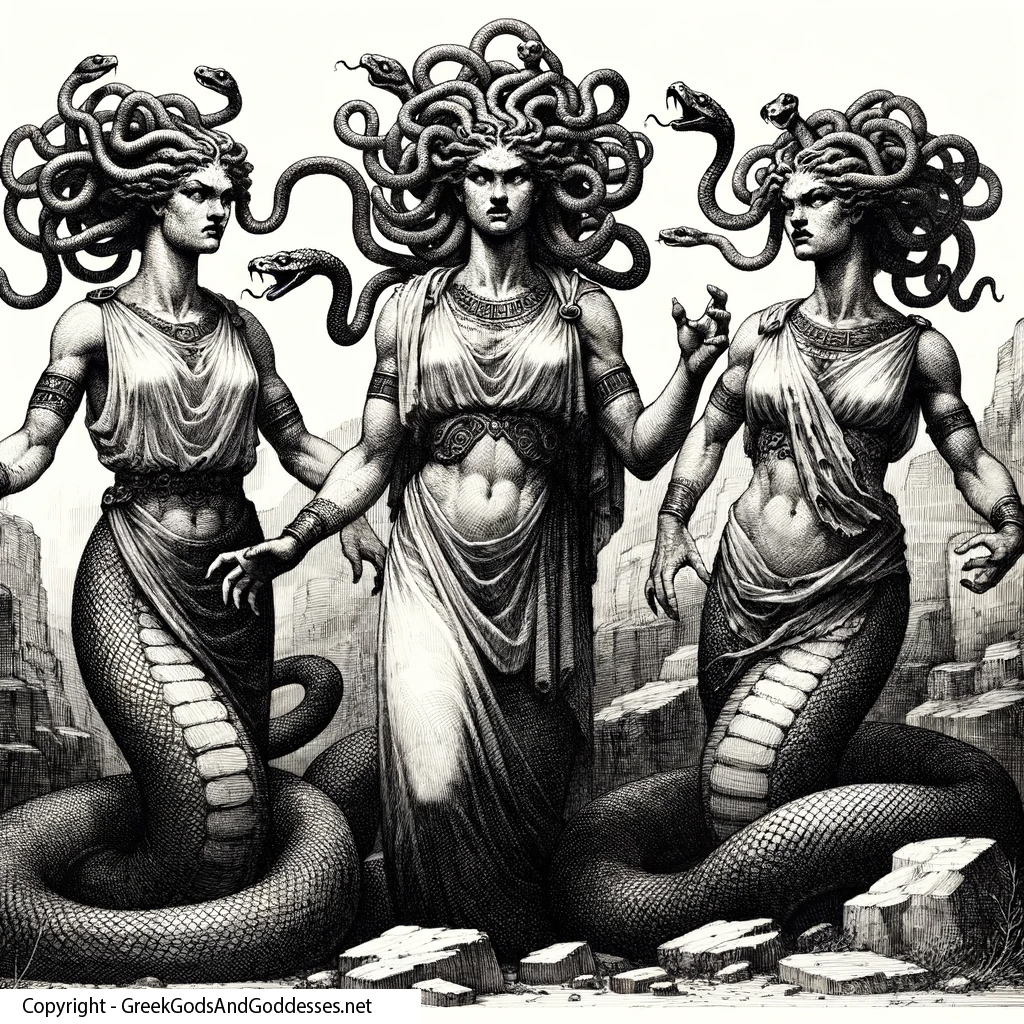In Greek mythology, the Gorgon was first referred to by the poet Homer as a single monster who had risen from the underworld.
The concept of the Gorgon is at least as old in mythology as Perseus and Zeus. The name is Greek, being derived from “gorgos” and translating as terrible or dreadful.

Another Greek poet, Hesiod, would later add two more Gorgons, resulting in the trio of sister known as Stheno (the Mighty), Euryale (the Far Springer), and the most well-known of the three, Medusa (the Queen). From Hesiod, they were described as the daughters of the sea god Phorcys and his wife, Ceto, who was also his sister.
The three Gorgons were..
Medusa – The most famous of the three Gorgons. Unlike her sisters, Medusa was mortal. She is often described as having snakes for hair, and anyone who looked directly into her eyes would be turned to stone. Medusa’s tale intertwines with that of the hero Perseus, who was sent to behead her. He accomplished this task by using the reflective surface of a shield, given to him by Athena, to see Medusa without looking directly at her, thus avoiding being turned to stone.
Stheno – The eldest of the Gorgon sisters. She was considered the most murderous and was said to have killed more people than both her sisters combined.
Euryale – Known for her piercing scream, Euryale was the second eldest of the sisters.
In early classical art depictions, the sisters were portrayed as winged creatures who were extremely ugly, with round faces, flat noses, large teeth, and tongues that lolled from their mouths. Most memorably, in place of hair, their heads were covered in writhing, venomous snakes. However, later art would paint Medusa as a beautiful, but deadly woman, and the only one of the sisters to possess snakes for hair, a punishment given by the goddess, Athena.
Of the three sisters, Medusa remains the most well-known. While Stheno and Euryale were immortal, Medusa was not. Her mortality is how Perseus, a great Greek hero and monster slayer, was later able to kill her at the behest of Polydecte.
After her beheading, Medusa’s children with Poseidon, Chrysaor and Pegasus, sprang up from the blood. As fate would have it, all of Medusa’s power was in her head and it is said that one look upon it resulted in the person turning to stone. Carved masks of the Gorgon were used to protect the wearer from the evil eye.
Link/cite this page
If you use any of the content on this page in your own work, please use the code below to cite this page as the source of the content.
Link will appear as Gorgons: https://greekgodsandgoddesses.net - Greek Gods & Goddesses, October 21, 2019